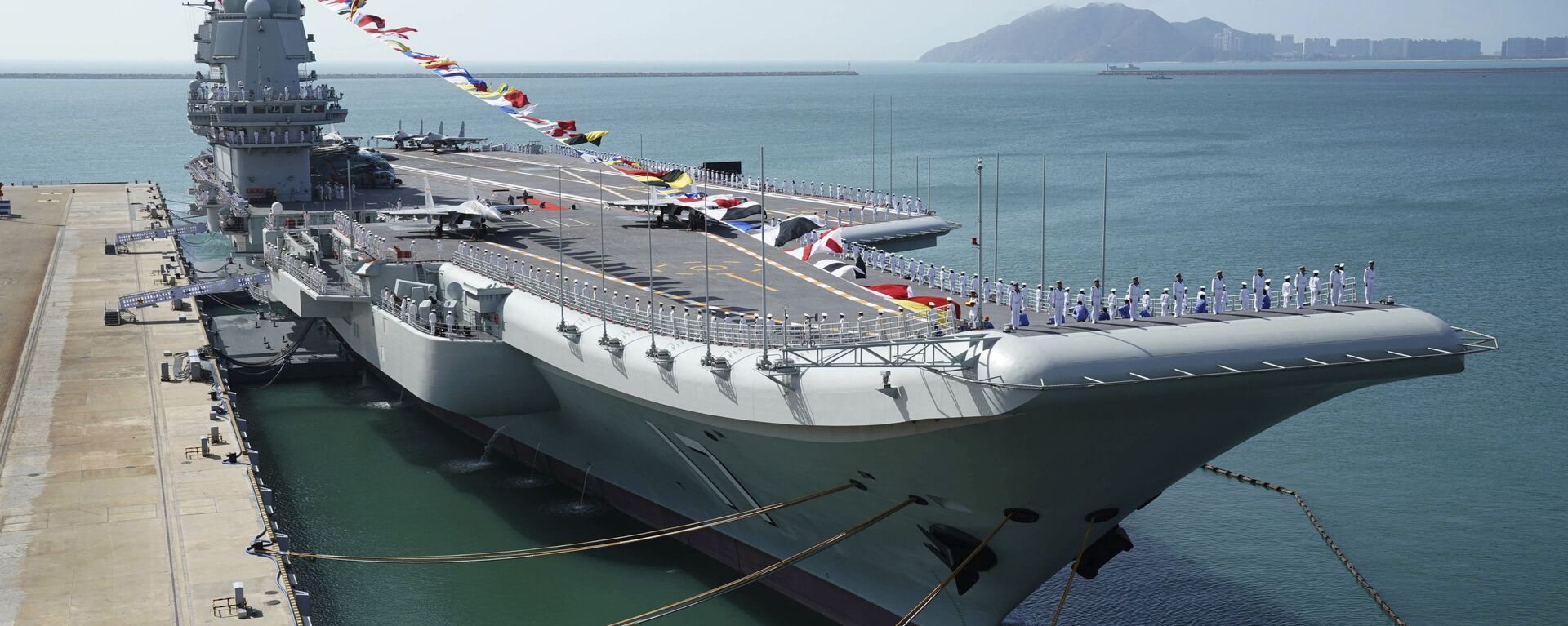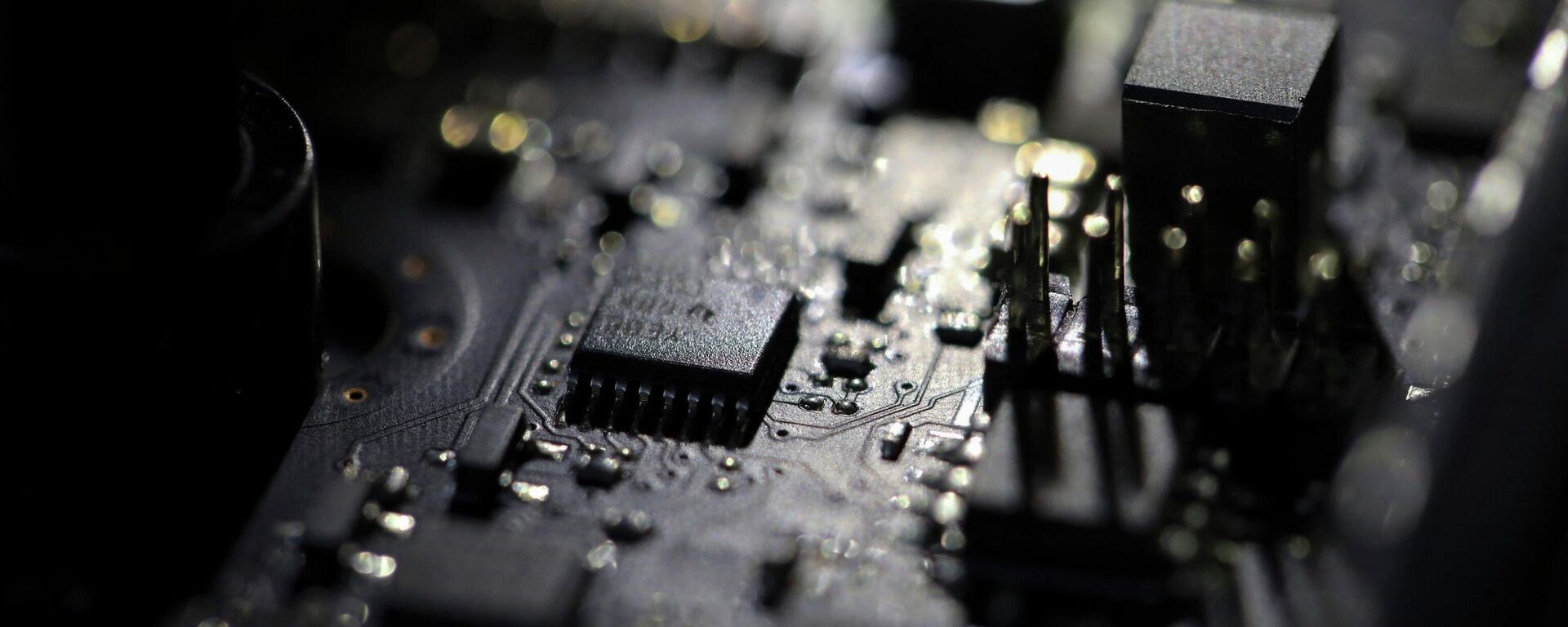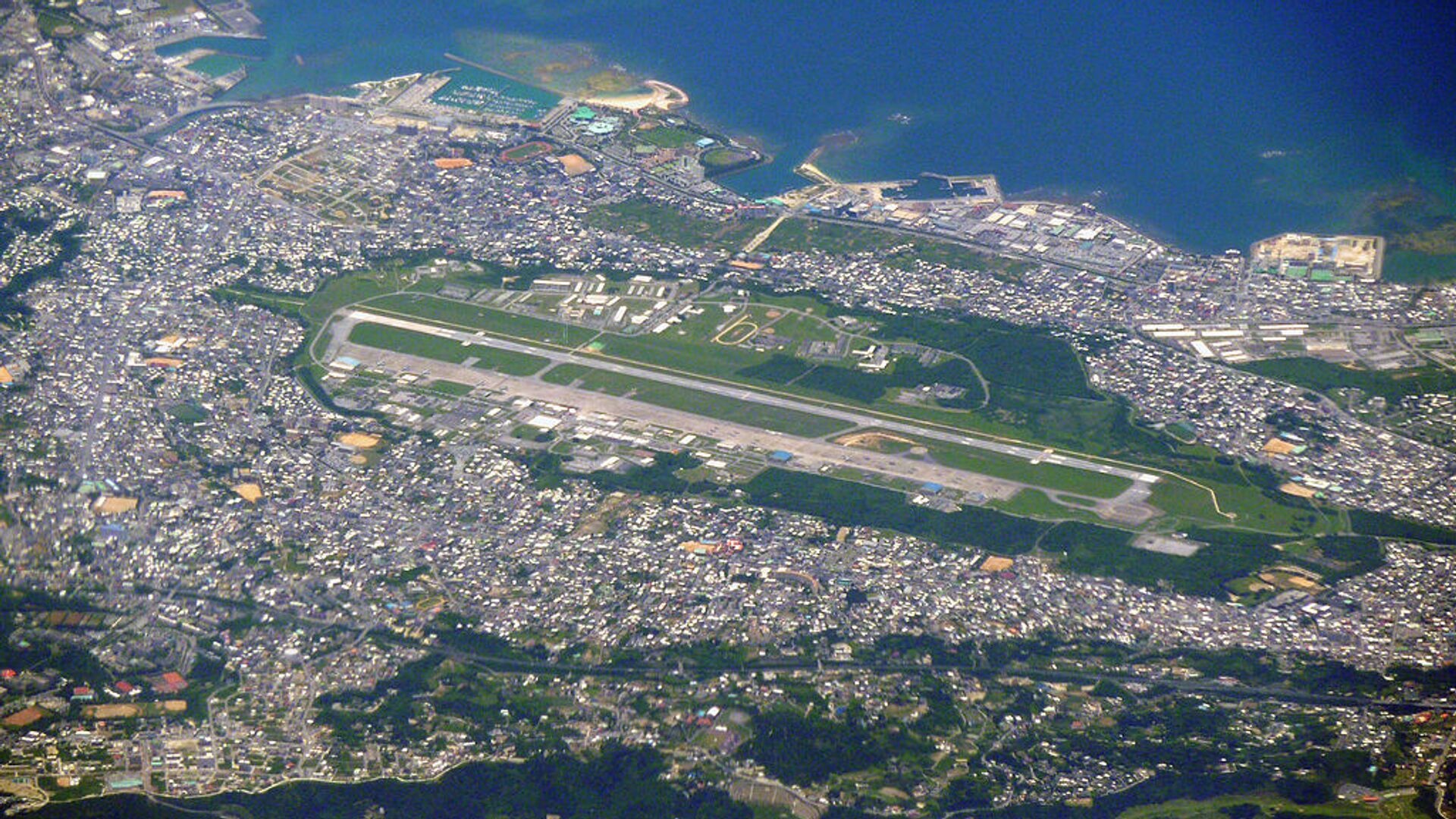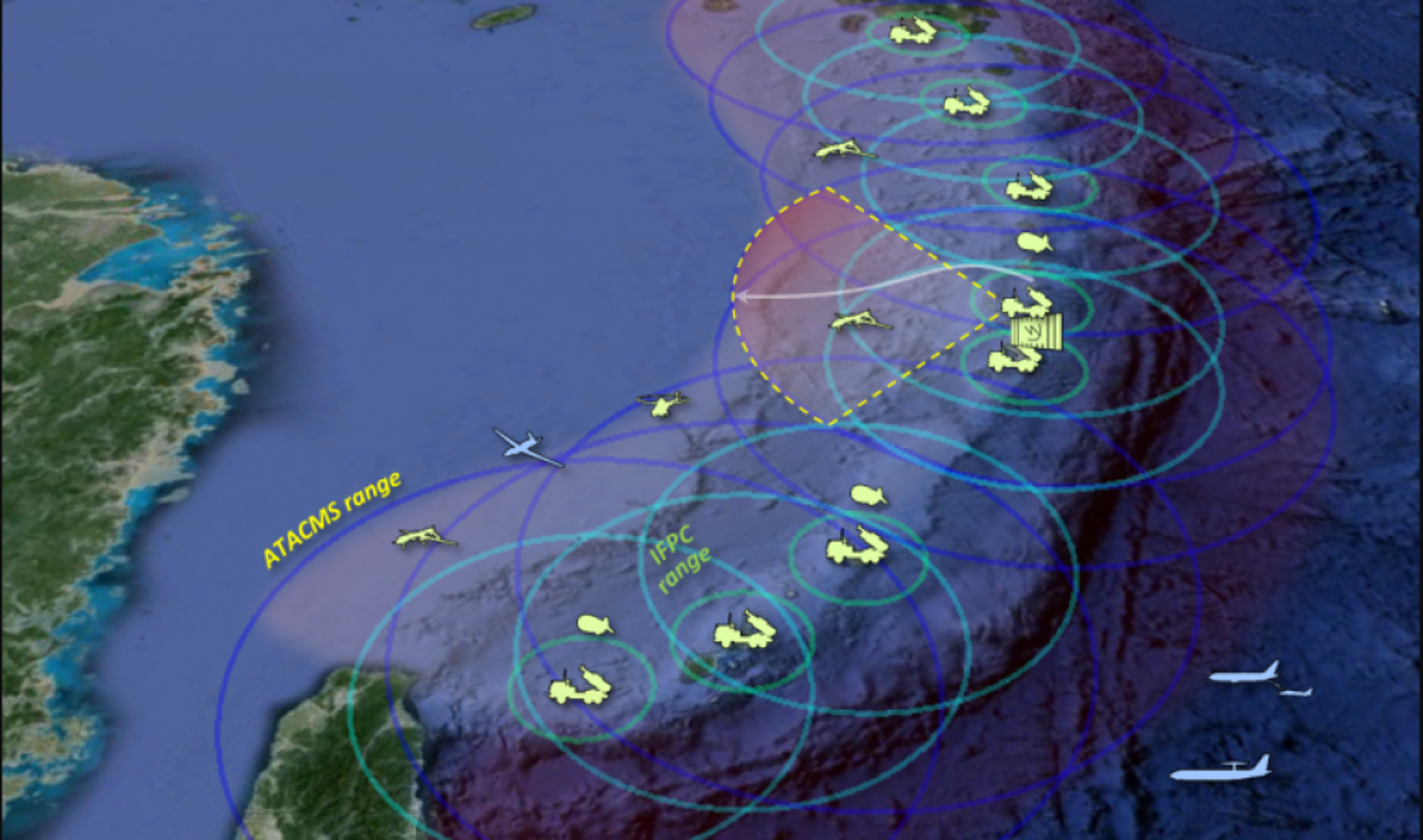https://sputnikglobe.com/20230913/us-deployments-in-japan-could-chain-gang-tokyo-into-conflict-with-china-1113350821.html
US Deployments in Japan Could 'Chain-Gang' Tokyo Into Conflict With China
US Deployments in Japan Could 'Chain-Gang' Tokyo Into Conflict With China
Sputnik International
While Seoul and Tokyo have been willing to host US forces because they're seen as a stabilizing force, it’s unclear how far either government is willing to tolerate Washington potentially dragging them into a major war with China.
2023-09-13T17:17+0000
2023-09-13T17:17+0000
2023-09-13T17:17+0000
analysis
china
taiwan
japan
okinawa
us marine corps
defense attache
https://cdn1.img.sputnikglobe.com/img/107957/85/1079578504_0:97:1024:673_1920x0_80_0_0_bb1a1b477083b8c008f21da0f55d0f94.jpg
Washington and Tokyo are increasingly preparing for what they call a "Taiwan contingency" - that is, the possibility that a conflict between the autonomous government in Taiwan and those of mainland China could draw the US and Japan into conflict with Beijing.According to reports in Japanese media on Wednesday, Tokyo has dispatched a Defense Ministry official to the Japan-Taiwan Exchange Association, Tokyo's informal embassy in Taipei, to act as a de facto defense attaché. The official has been positioned there since the Spring, alongside another retired Japanese Self-Defense Forces officer.The Japanese government does not formally recognize the Republic of China on Taiwan, having switched its recognition of the legitimate Chinese government to the People's Republic of China in Beijing in 1972.Still, Japan has strong economic ties to Taiwan, which was once a colony of the Japanese Empire used for sugarcane and rice cultivation for the home islands. Today, much of the exchange is based on electronics, including the manufacturing of advanced microchips.The new unit formation is a recent introduction by the USMC, which announced in 2020 it would restructure from being a primarily land combat-based force toward a maritime and amphibious basis, in line with the needs of the US' new strategic focus on "great power competition" with Russia and China.Much of the Pentagon's energy since 2017 has gone toward strengthening its forces and its alliances in what it calls the Indo-Pacific region, shifting new forces into the area and seeking to bolster its military relationships with smaller nations in the region by casting China as a threat to their sovereignty. No entity has received more attention than Taiwan, a Chinese island that has maintained its autonomy from Beijing only with the informal but open support of the United States.Dr. Victor Teo, a political scientist who specializes in the international relations of the Indo-Pacific region, told Sputnik on Wednesday that despite allowing such force expansions on their territories, Japan and other regional partners like South Korea are ambivalent about the potential of being drawn into a potentially catastrophic conflict with China, Russia, or the Democratic People's Republic of Korea (DPRK)."This is particularly important as Japan has extensive economic interests in Taiwan, and regards the freedom to navigate Taiwan Straits as vital to its own survival," Teo added."Most analysts assume that US forces in Japan and Korea would be used against China in the event that hostilities break out. This is plausible, but I think there are still difficulties. It is unclear at what point or under what conditions the governments of Japan and [South] Korea would agree to have US forces operating out of these bases attack China as Tokyo and Seoul have their own security considerations to think about. After all, Japan and South Korea are sovereign entities with their own interests and security considerations, and would definitely voice their own resistance, especially if they feel they are being chain-ganged into a conflict they want no part of."
https://sputnikglobe.com/20230911/chinese-carrier-shandong-drills-south-of-taiwan-after-slew-of-us-led-war-games-1113289604.html
https://sputnikglobe.com/20230818/japan-us-south-korea-to-agree-on-exchanging-data-on-semiconductor-shipments-1112701598.html
china
taiwan
japan
okinawa
Sputnik International
feedback@sputniknews.com
+74956456601
MIA „Rossiya Segodnya“
2023
News
en_EN
Sputnik International
feedback@sputniknews.com
+74956456601
MIA „Rossiya Segodnya“
Sputnik International
feedback@sputniknews.com
+74956456601
MIA „Rossiya Segodnya“
taiwan; war with china; japan; okinawa; littoral regiment; us marines
taiwan; war with china; japan; okinawa; littoral regiment; us marines
US Deployments in Japan Could 'Chain-Gang' Tokyo Into Conflict With China
While Seoul and Tokyo have been willing to host US forces for decades because they have been seen as a stabilizing force in the region, it’s unclear how far either government is willing to tolerate Washington potentially dragging them into a major war with China, especially if it’s over Taiwan, an expert told Sputnik.
Washington and Tokyo are increasingly preparing for what they call a "Taiwan contingency" - that is, the possibility that a conflict between the autonomous government in Taiwan and those of mainland China could draw the US and Japan into conflict with Beijing.
According to reports in Japanese media on Wednesday, Tokyo has dispatched a Defense Ministry official to the Japan-Taiwan Exchange Association, Tokyo's informal embassy in Taipei, to act as a de facto defense attaché. The official has been positioned there since the Spring, alongside another retired Japanese Self-Defense Forces officer.
The Japanese government does not formally recognize the Republic of China on Taiwan, having
switched its recognition of the legitimate Chinese government to the People's Republic of China in Beijing in 1972.
Still, Japan has strong economic ties to Taiwan, which was once a colony of the Japanese Empire used for sugarcane and rice cultivation for the home islands. Today, much of the exchange is based on electronics, including the manufacturing of advanced microchips.

11 September 2023, 16:59 GMT
Japanese media has also reported on the formation of a new US Marine Corps (UMSC) littoral regiment that will be based in the southern Japanese island of Okinawa. The force of nearly 2,000 Marines, including long-range fires, anti-air systems, and amphibious vessels, is intended to protect Japan’s Ryukyu Islands, which string along the eastern edge of the East China Sea between Taiwan and the Japanese home islands.
The new unit formation is a recent introduction by the USMC, which announced in 2020 it would restructure from being a primarily land combat-based force toward a maritime and amphibious basis, in line with the needs of
the US' new strategic focus on "great power competition" with
Russia and China.
Much of the Pentagon's energy since 2017 has gone toward
strengthening its forces and its alliances in what it calls the Indo-Pacific region, shifting new forces into the area and seeking to
bolster its military relationships with smaller nations in the region by casting China as a threat to their sovereignty. No entity has received more attention than Taiwan, a Chinese island that has maintained its autonomy from Beijing only with the informal but open support of the United States.
Dr. Victor Teo, a political scientist who specializes in the international relations of the Indo-Pacific region, told Sputnik on Wednesday that despite allowing such force expansions on their territories, Japan and other regional partners like South Korea are ambivalent about the potential of being drawn into a potentially catastrophic conflict with China, Russia, or the Democratic People's Republic of Korea (DPRK).
"Over the last decade, Japan has stepped up political and security preparations to prepare for a Taiwan contingency. Tokyo has increasingly identified Taiwan's security to be intricately linked to Japan’s own security," Teo said, noting that from Tokyo’s perspective, such moves "are just part of the contingency planning to ensure that Japan has adequate intelligence capabilities as well as preparation for political and consular representation in case China undertakes reunification by force."

18 August 2023, 10:02 GMT
"This is particularly important as Japan has extensive economic interests in Taiwan, and regards the freedom to navigate Taiwan Straits as vital to its own survival," Teo added.
"The US forces in Okinawa and other parts of Japan and South Korea have been part of the strategic landscape in Asia since the end of the Second World War. The Americans and their allies regard these deployments as being critical to the peace and stability of the region, but China as well as states in the opposing camp, like Russia and North Korea, disagree," he explained.
"Most analysts assume that US forces in Japan and Korea would be used against China in the event that
hostilities break out. This is plausible, but I think there are still difficulties. It is unclear at what point or under what conditions the governments of Japan and [South] Korea would agree to have US forces operating out of these bases attack China as Tokyo and Seoul have their own security considerations to think about. After all, Japan and South Korea are sovereign entities with their own interests and security considerations, and would definitely voice their own resistance, especially if they feel they are being chain-ganged into a conflict they want no part of."





